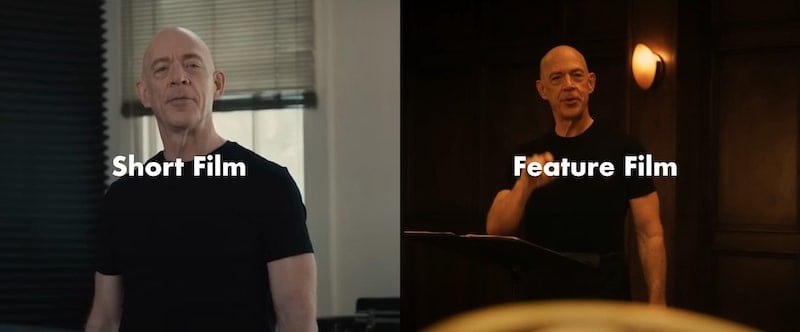[ad_1]
Moral of the story: color grading is a storytelling device.

Welcome to The Queue — your daily distraction of curated video content sourced from across the web. Today, we’re watching a video essay that explores why short films all have a similar look to them.
Look. Let’s not beat around the bush: making movies is hard. Even when they’re short.
Dunking on anyone with the motivation to actually make a film is a reprehensible offense in our books. But facts are facts: short films tend to have a very distinct look.
So what makes a short film look like a short film? It’s hard to put your finger on it, but broadly speaking, it tends to boil down to two deficiencies: money and experience.
The video essay below does a much more thorough job of breaking down the specifics. But broadly put, three key factors contribute to giving a short film a “short film aesthetic”: set design, lighting, and color grading.
So, in the spirit of learning more about how the sausage is made (and not in the spirit of looking down on folks still figuring out how to make movies), let’s take a look at why short films tend to share a similar visual look:
Watch “Why do Short Films look like that?”
Who made this?
This video essay on the specific look of short films is by Movie LUTs, a video essay channel that, as their name suggests, focuses on LUTs and Lightroom Profiles. You can follow their YouTube channel here.
More videos like this
For more of Movie LUTs’ work, and specifically for more of their work focused on Whiplash, here’s a look at why Damien Chazelle’s film is predominantly presented in two colors.
As the above video essay itself states, the impetus for chatting about the “short film look” was this video essay, which as a visual experiment, removes the yellow tint from Damien Chazelle’s Whiplash.
And here’s a similar experiment with color grading, this time with 2019’s Joker.
And, for good measure, here’s the same experiment but with notable orange movie Blade Runner 2049.
Related Topics: Short Films, The Queue

Meg has been writing professionally about all things film-related since 2016. She is a Senior Contributor at Film School Rejects as well as a Curator for One Perfect Shot. She has attended international film festivals such as TIFF, Hot Docs, and the Nitrate Picture Show as a member of the press. In her day job as an archivist and records manager, she regularly works with physical media and is committed to ensuring ongoing physical media accessibility in the digital age. You can find more of Meg’s work at Cinema Scope, Dead Central, and Nonfics. She has also appeared on a number of film-related podcasts, including All the President’s Minutes, Zodiac: Chronicle, Cannes I Kick It?, and Junk Filter. Her work has been shared on NPR’s Pop Culture Happy Hour, Business Insider, and CherryPicks. Meg has a B.A. from the University of King’s College and a Master of Information degree from the University of Toronto.
Recommended Reading
[ad_2]
Source link



